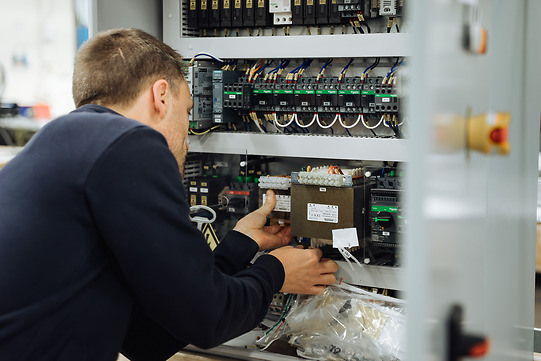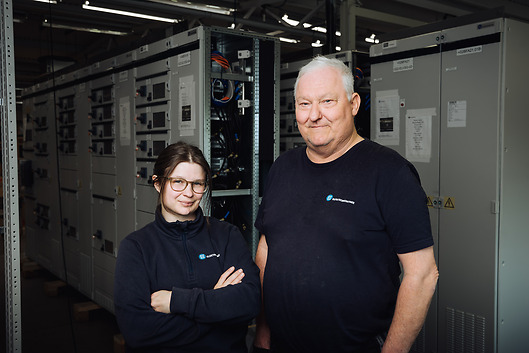Industrial automation involves the application of various technologies and systems to automate and enhance processes within industrial production and manufacturing. It utilizes computers, robots, sensors, and advanced control systems to improve efficiency, precision, and quality in production processes. By automating repetitive and time-consuming tasks, industrial automation can increase production speed, reduce errors and risks, and optimize resource utilization. It plays a pivotal role in the modern manufacturing industry, enabling faster innovation, flexibility, and competitiveness in the market.
The industrial development that originated in England in the early 19th century has now progressed to what is commonly referred to as the fourth industrial revolution, sometimes known as Industry 4.0. The advent of computers and advanced telecommunications during the mid to late 20th century has evolved into sophisticated IT solutions in development, design, production, and notably, logistics. The aim of this development is to work faster, smarter, and more sustainably, thereby creating advantages for both suppliers and customers.
There's no doubt that the market for Industry 4.0 technology is expanding, and it's estimated that the field of control systems will grow by approximately 80% over the next decade. The fact that we're entering an electrification phase for vehicle fleets in developing countries in the coming decades means that Industry 4.0 technology will be essential for power management and administration. Concurrently, ongoing development is taking place in sectors such as process industries, where control and guidance are imperative. Moreover, there's a substantial market for modernizing older equipment through the introduction of smart control systems and switchgear.
Concurrent with the development of Industry 4.0 products, it's critical to monitor logistical flows from suppliers as well as internally within the factory. The sensitivity of these flows was tested during the Covid-19 pandemic, where producers of switchgear, for instance, faced shortages in semiconductors, metals, and transportation. Here again, Industry 4.0 technology can assist suppliers with smart solutions for production element control and monitoring, both internally and within the supply chain.

In domains like control equipment and switchgear, it could involve equipment with individual IP addresses capable of generating data in cloud systems for analysis and control within a broader context. At first glance, this might seem like science fiction, but when examining the evolution of consumer products, there are already heat pumps, charging stations, and surveillance systems that employ IT technology to support monitoring and control.
Environmental consciousness is a crucial concern for both suppliers and customers. Reusability is a pivotal area, and within both control equipment and switchgear, significant use of plastics occurs, offering trends and potential for recycling.

At Elektromontage, we have extensive experience in working with control equipment as well as switchgear. We aim to be a part of the advancements in Industry 4.0. Our knowledgeable workforce is ready to tackle new challenges and introduce innovative solutions and ideas that create added value for our customers.
We design and manufacture electrical systems for:
Our work is often done in close collaboration with the customer focusing at the goal to deliver a customer adapted system where functionality, safety, reliability and energy efficiency goes hand in hand. We deliver systems that are designed and manufactured following IEC , ATEX and UL/CSA standards.
Many of our customers appreciate our full responsibility of the full value chain from design to manufacturing of control and/or power distribution on single machinery equipment or a full plant.
Learn more about the products we can supply in the field of Industrial Machinery: